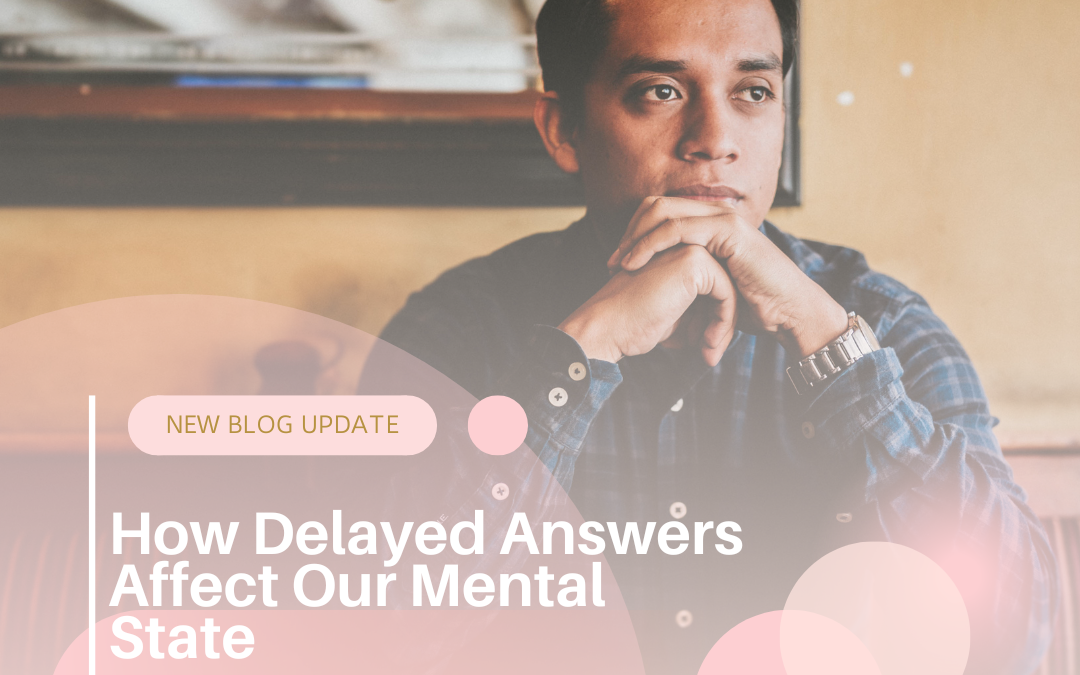Waiting—it sounds simple. But whether you’re waiting for test results, a job offer, a message back, or a decision that could change everything, the in-between space can feel like emotional quicksand.
We live in a world that values immediacy, yet life often moves at its own pace. And when things don’t resolve as quickly as we’d like, our minds can turn the unknown into a breeding ground for anxiety, overthinking, and emotional fatigue. Why does waiting feel so hard? And how does it really impact our mental health?
Let’s explore.
Why Waiting Hurts More Than We Expect
Psychologically, waiting = uncertainty. And the human brain hates uncertainty. Our survival instincts are wired to scan for threats and predict outcomes. So when something important is up in the air, the brain goes into overdrive trying to fill in the gaps—often with worst-case scenarios.
Researchers call this intolerance of uncertainty—a trait linked to higher levels of anxiety, depression, and stress. The longer we’re left without answers, the more we ruminate, spiral, or brace for disappointment.
What’s Really Happening in the Brain?
Here’s what kicks in during those long periods of not knowing:
-
Amygdala activation: The brain’s fear center stays on alert, keeping us stuck in fight-or-flight mode.
-
Cognitive load increases: Our mental energy gets drained by “what if” loops and hypothetical planning.
-
Reward systems stall: We crave closure. The absence of it feels like a reward we’ve been denied—over and over.
Essentially, our brain treats waiting like a threat—even if nothing dangerous is happening.
Emotional Impacts of Delayed Answers
Waiting can stir up a range of intense emotional responses, including:
-
Anxiety: Fear of the unknown grows louder the longer we wait.
-
Frustration: Especially when we feel powerless to speed things up.
-
Hopelessness: If the wait drags on, we might start to expect the worst.
-
Distraction and disengagement: It’s hard to be present when your mind is stuck in limbo.
Waiting can even mimic grief—we may mourn the illusion of control, the plans we had in place, or the future we were hoping for.
How to Cope While You Wait
You might not be able to speed up the outcome, but you can protect your mental health in the meantime. Here’s how:
-
Name the uncertainty
Simply saying “This is hard because I don’t know what’s going to happen” can validate your experience and reduce shame or confusion. -
Practice “both-and” thinking
Hold space for multiple truths: I’m nervous and hopeful. I’m scared and still okay. This kind of flexibility can ease emotional tension. -
Limit mental rehearsal
Replaying scenarios or scripting conversations might feel productive—but it usually just drains energy. Set time limits on how long you “think about it.” -
Ground in the present
Use mindfulness, breathwork, or sensory grounding techniques to bring yourself back to the here and now when the future feels overwhelming. -
Redirect your focus
Pour your energy into things you can control—routine, rest, connection, creativity. Even small wins matter.
Final Thoughts
Waiting is a quiet, invisible struggle—but it’s very real. It tests our patience, our nervous systems, and our ability to sit with uncertainty. But with awareness, compassion, and intentional support, we can learn to navigate the in-between with more resilience.
So if you’re waiting right now—know this: You’re not weak for feeling overwhelmed. You’re human. And you’re not alone.


Recent Comments